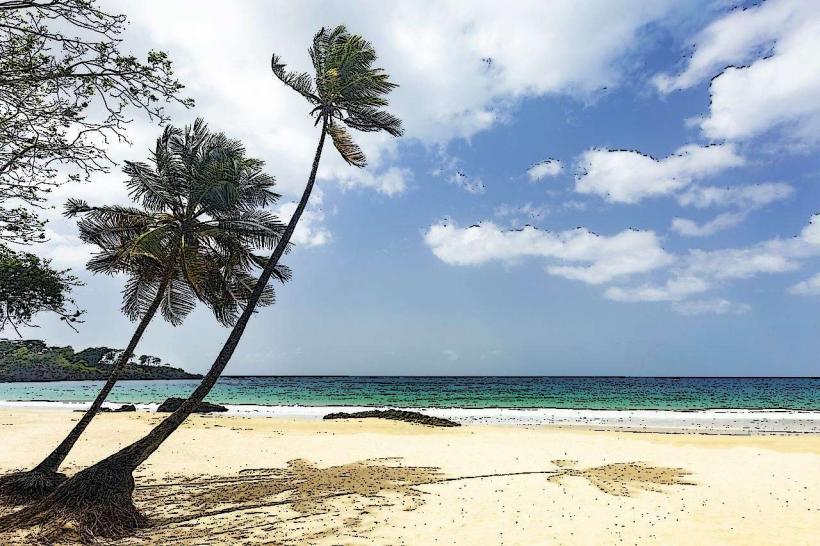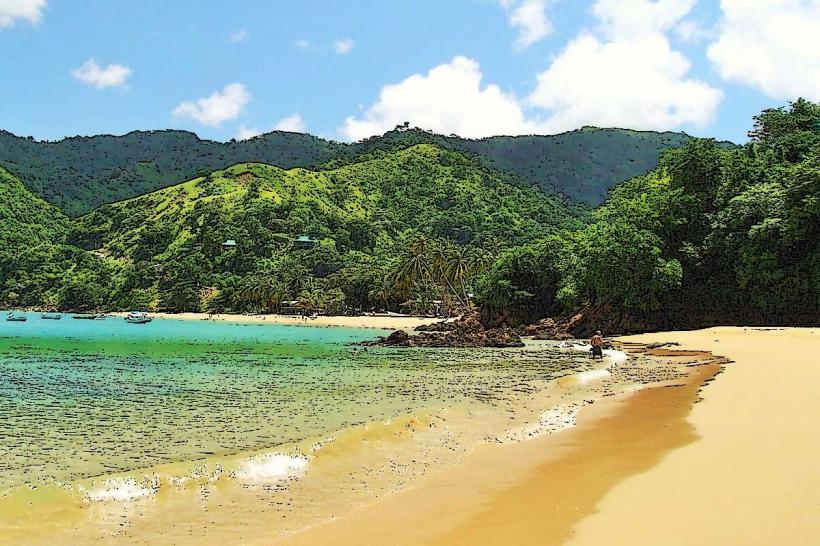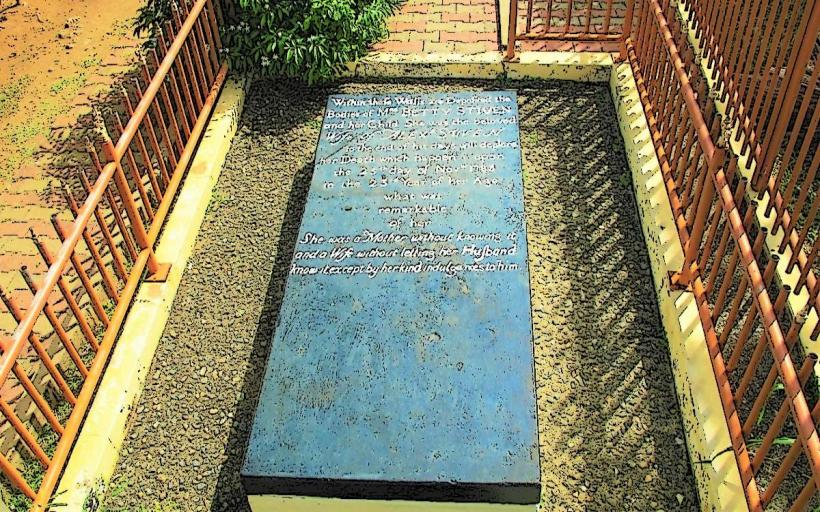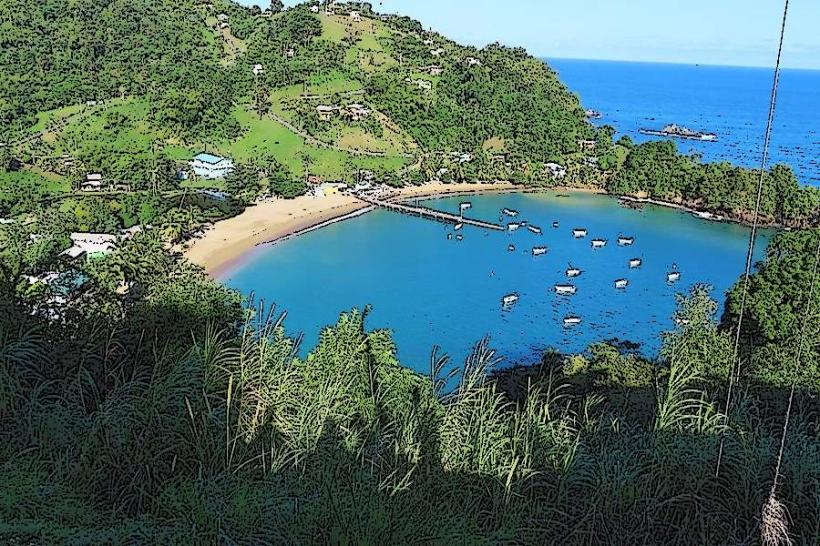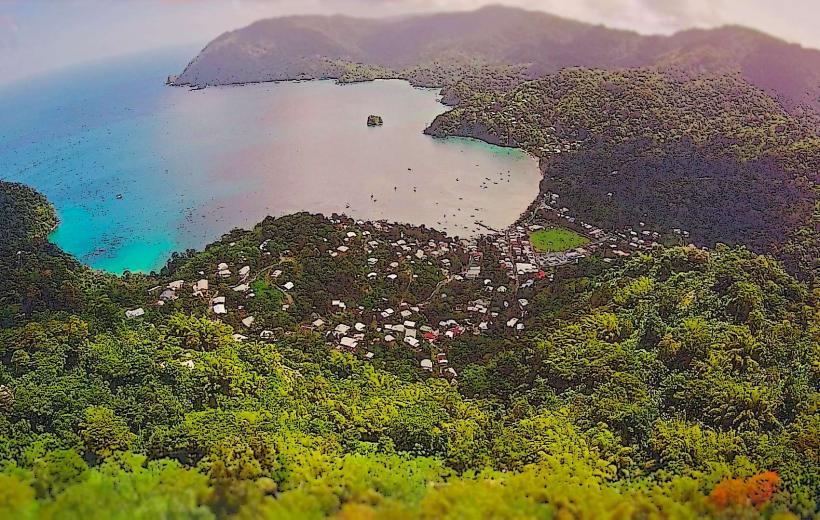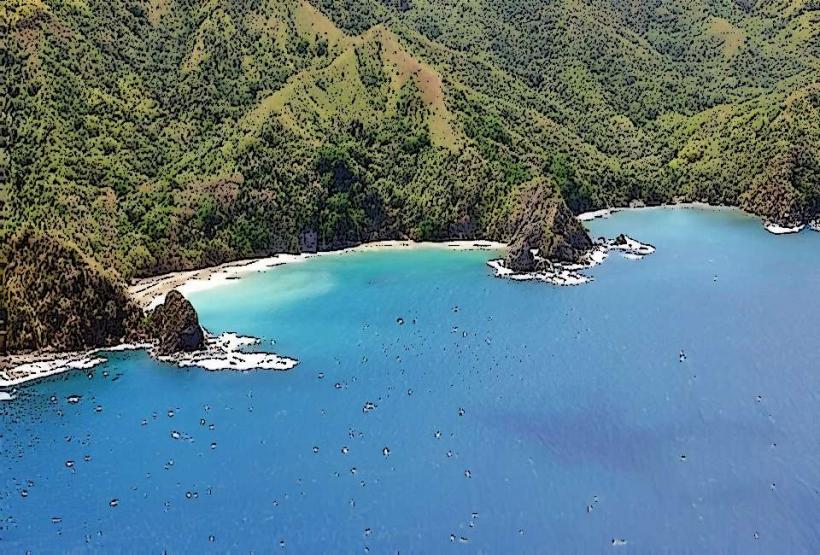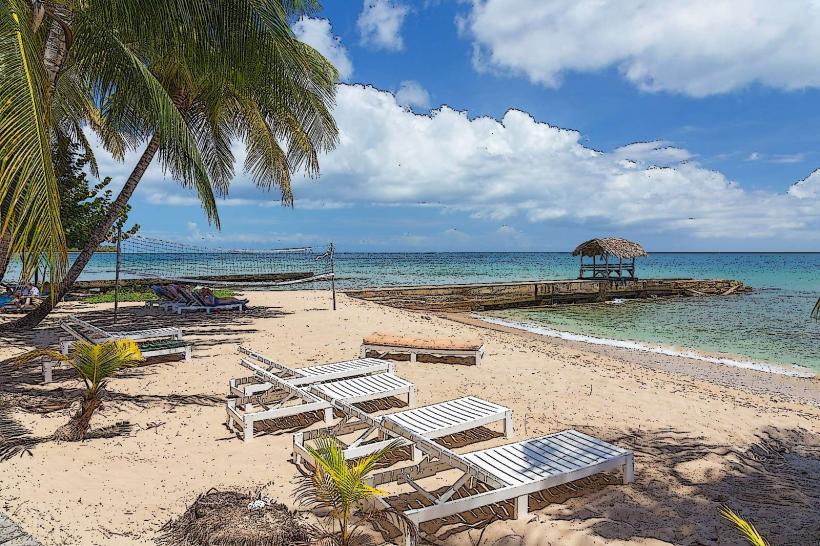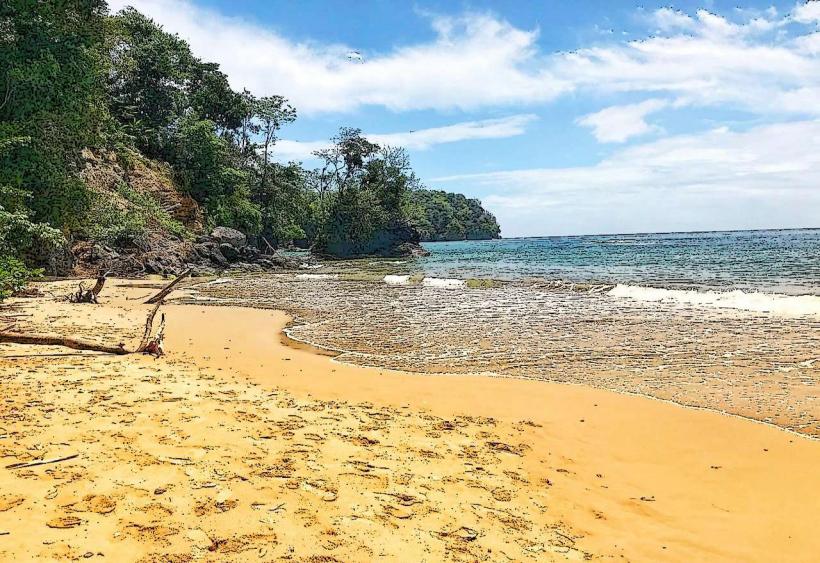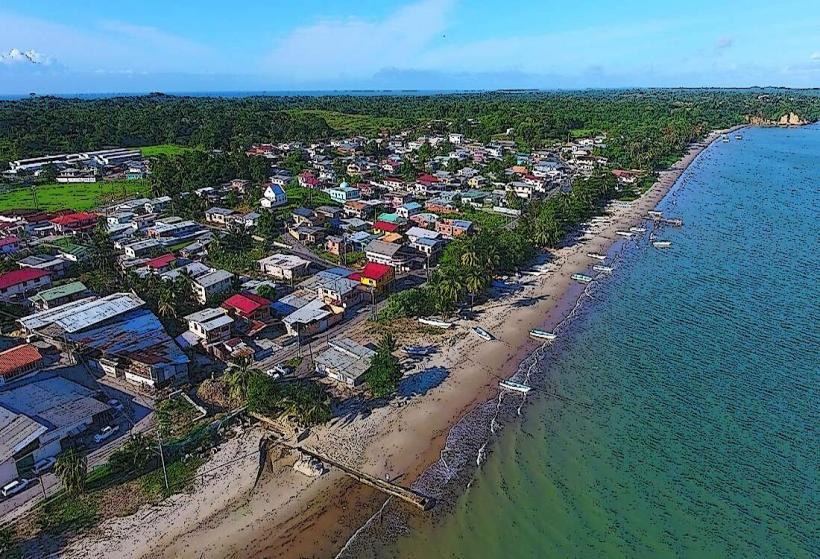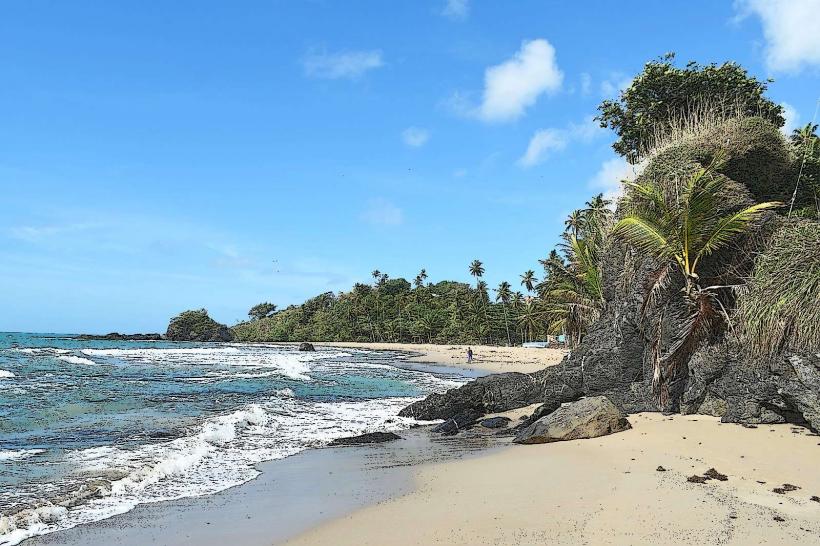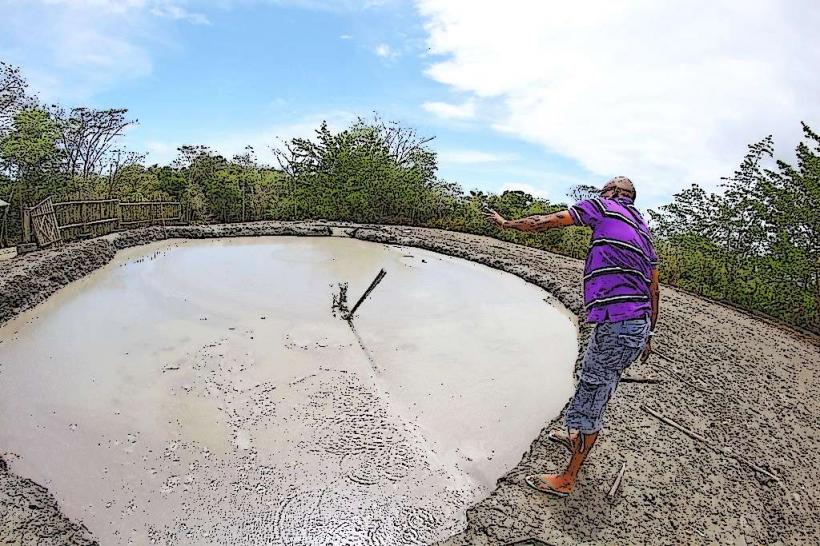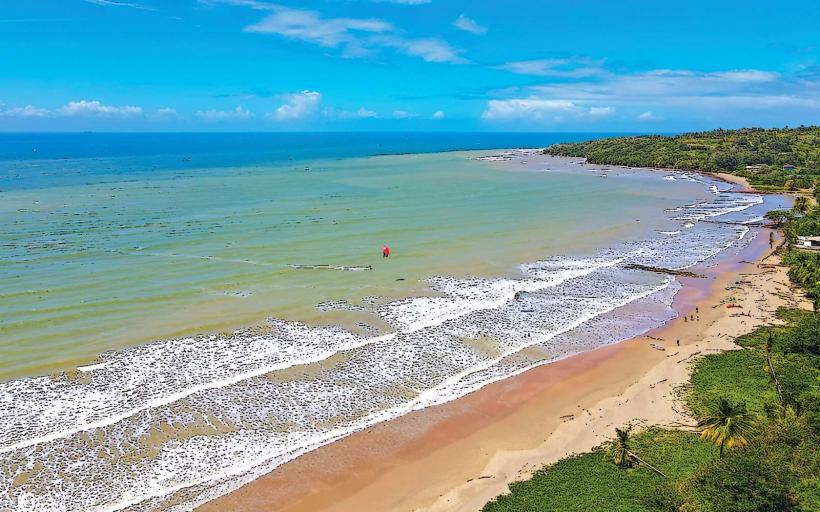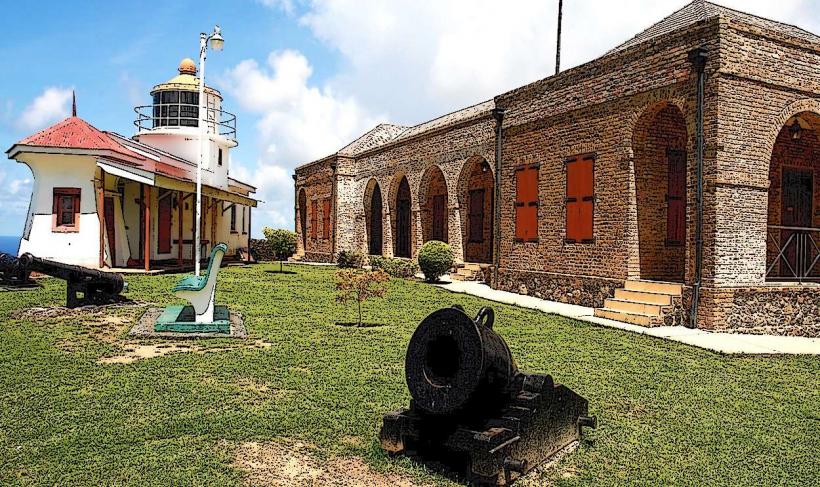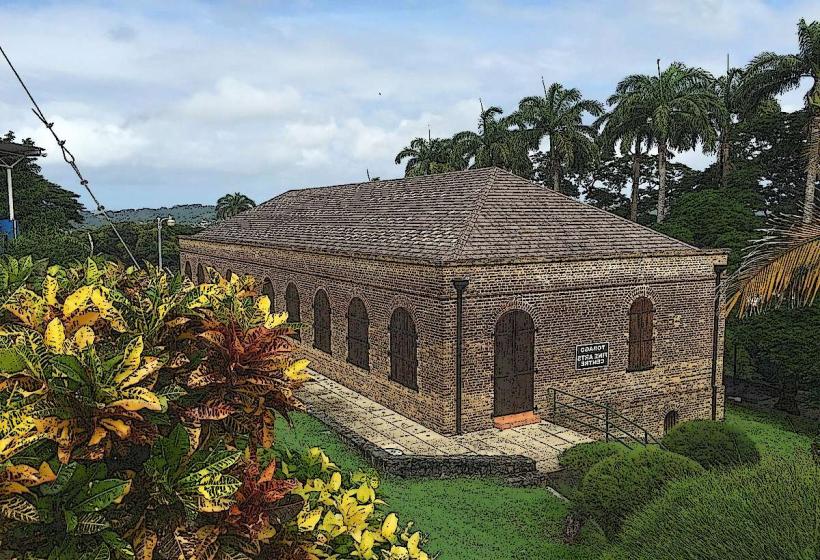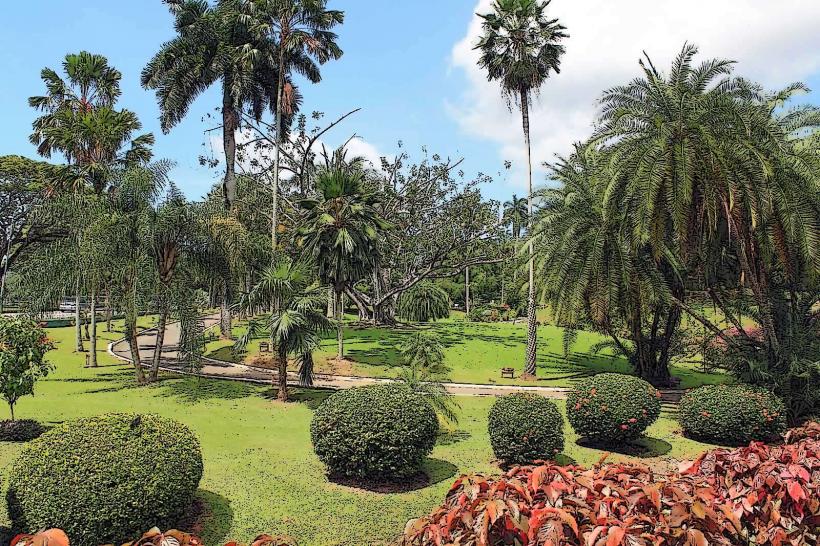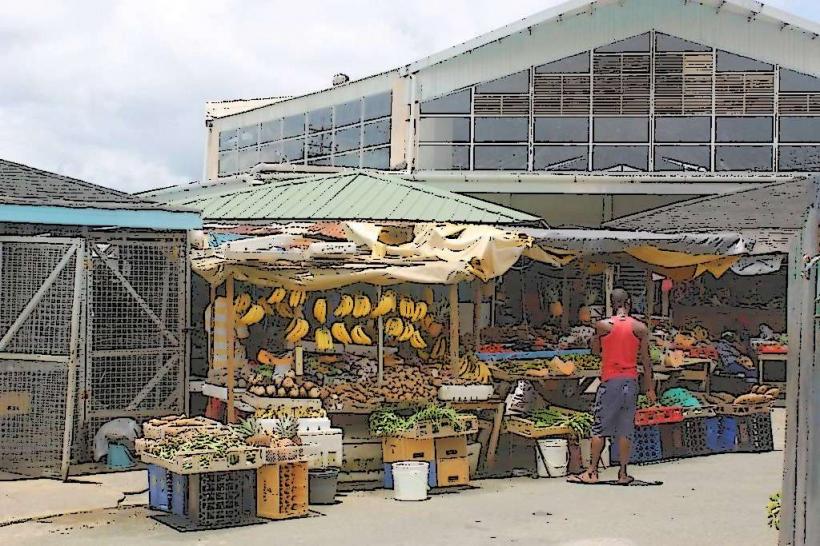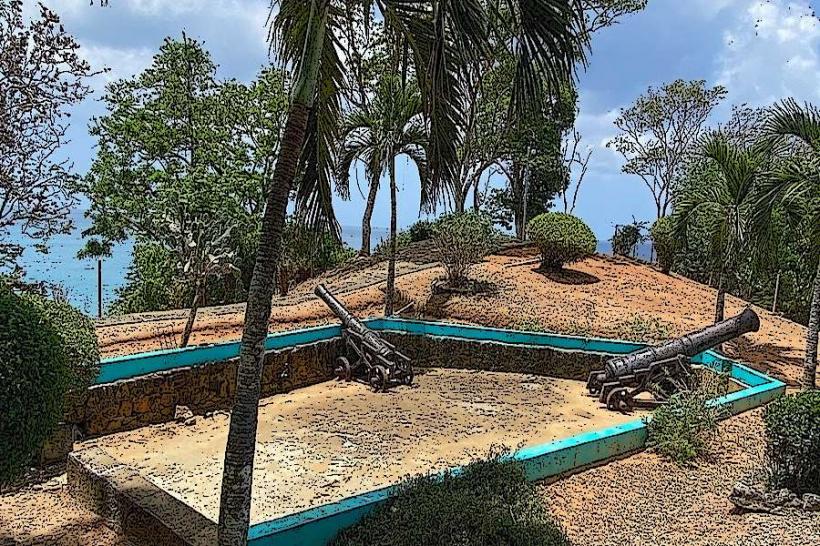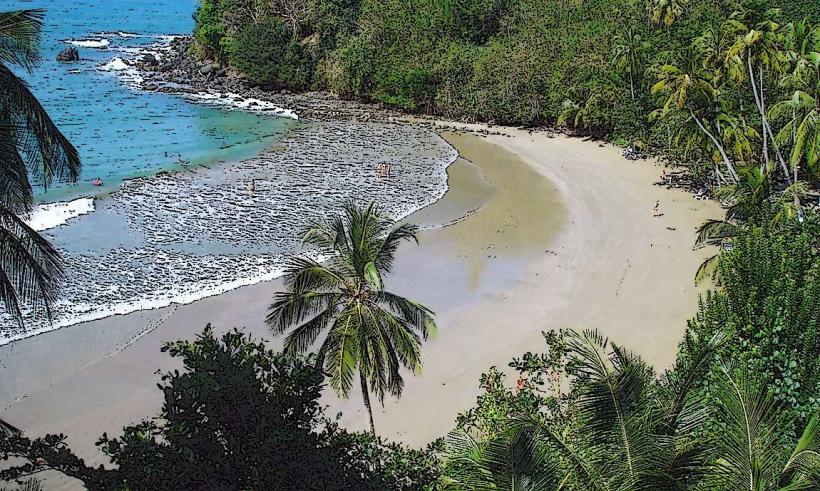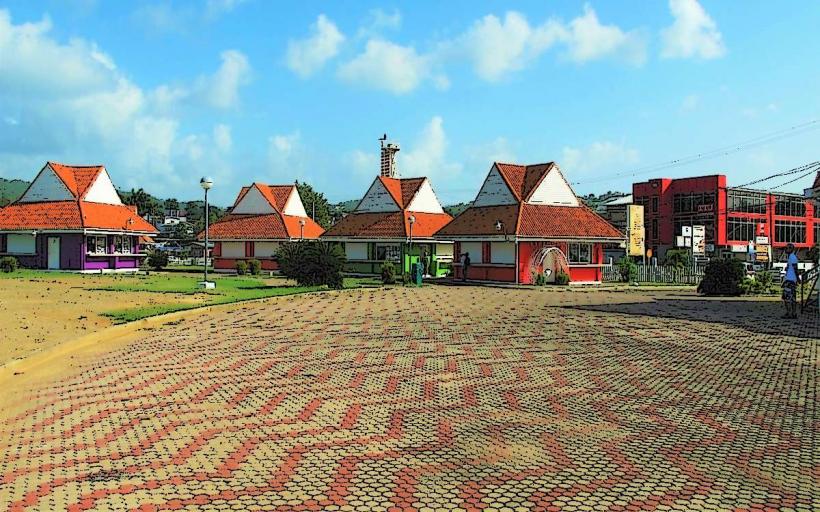Information
Landmark: Courland BayCity: Scarborough
Country: Trinidad and Tobago
Continent: North America
Courland Bay, Scarborough, Trinidad and Tobago, North America
Courland Bay is a coastal area situated on the northwestern coast of Tobago, near the town of Plymouth.
Visual Characteristics
The bay features a crescent-shaped shoreline approximately 1.5 kilometers in length. The sand is a light brown to beige color with a medium grain texture. The water clarity varies, typically showing shades of turquoise and deep blue depending on depth and sediment. The surrounding vegetation consists of dense tropical foliage, including palm trees and various shrubs, reaching up to the shoreline in some sections.
Location & Access Logistics
Courland Bay is located 10 kilometers west of Scarborough, the capital of Tobago. Access is via the Claude Noel Highway, turning onto Milford Road, then following the main coastal road towards Plymouth. From Plymouth, local signage directs to the bay. Parking is available on unpaved areas adjacent to the main access points. Public transport options are limited; local maxi-taxis (minibuses) operate on the main road between Scarborough and Plymouth, requiring a short walk from the nearest stop.
Historical & Ecological Origin
Historically, Courland Bay was the site of a Dutch settlement in the 17th century, known as Nieuw Vlissingen. The bay's geological formation is a result of coastal erosion and sediment deposition over millennia. Ecologically, it is part of the marine ecosystem of the Caribbean Sea, supporting coral reefs offshore and a variety of coastal flora and fauna.
Key Highlights & Activities
Snorkeling and diving are possible in the offshore reef areas, particularly during calm sea conditions. Kayaking and paddleboarding can be undertaken from the beach. The beach itself is suitable for sunbathing and walking. Birdwatching is also an activity, with various coastal and forest species present in the vicinity.
Infrastructure & Amenities
Limited infrastructure is present. There are no permanent restroom facilities directly on the beach. Shade is primarily provided by natural vegetation. Cell phone signal (4G) is generally available. No food vendors are permanently stationed at the bay; visitors typically bring their own provisions or dine in Plymouth.
Best Time to Visit
The best time for water activities is during the dry season, from January to May, when seas are typically calmer. Mid-morning offers good lighting for photography before the sun reaches its zenith. High tide is generally preferable for swimming and water sports to ensure adequate water depth.
Facts & Legends
Local lore suggests that Courland Bay was a favored landing spot for pirates due to its sheltered nature. A specific historical oddity is the remnants of old fortifications, believed to be from the Dutch colonial period, which can still be found in the surrounding hillsides.
Nearby Landmarks
- Plymouth (1.5km East)
- Fort James (2.0km East)
- Pigeon Point (12.0km Southeast)
- Buccoo Reef (10.0km Southeast)
- Scarborough Botanical Gardens (10.5km East)

